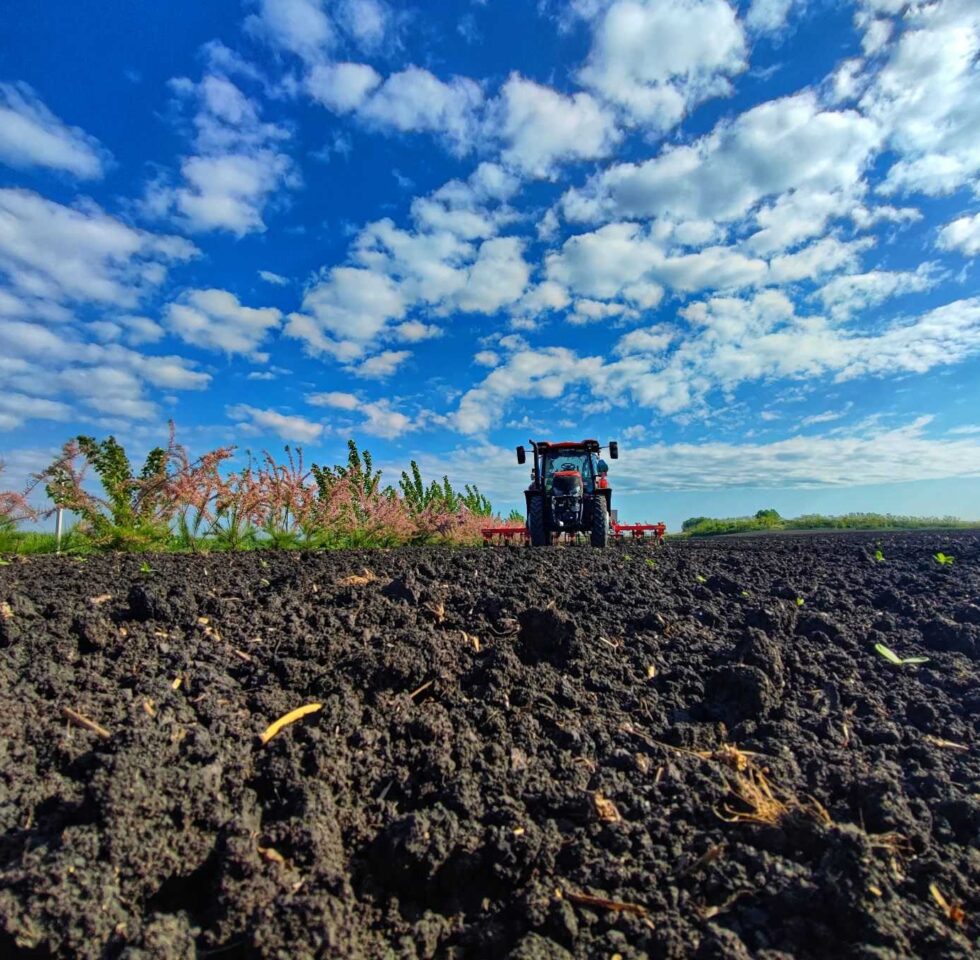How We Tackle Weeds in Organic Chickpeas
June 23, 2025We’re back in the field with our chickpea cultivation series! See how we tackle weeds after emergence using inter-row cultivation.
Read articleIn sustainable organic farming, weed control plays a vital role in maintaining crop health and maximizing yield. We are dedicated to implementing innovative and eco-friendly practices to tackle weeds without relying on harmful pesticides. Join us as we explore the field operation of mechanical weed control and advanced techniques of data analysis.

At LoginEKO, we have developed a comprehensive strategy that focuses on four main pillars: crop rotation, soil tillage, crop management, and direct mechanical weed control. By implementing these pillars in a systematic manner, we aim to effectively control weeds while promoting the overall health and productivity of our agroecosystems.
At LoginEKO, we recognize the importance of regular and timely weed control operations. We conduct these crucial activities multiple times throughout the year, tailoring the frequency to suit the specific needs of each crop. For narrow-row crops, we typically perform the operations twice, whereas wide-row crops require up to five weed control sessions. This proactive approach helps prevent weed growth from overpowering the crops, and ensure their optimal development.
To enhance our weed control efforts, we engage in continuous data analysis. Our team collects and analyzes data related to weed species, growth patterns, and the effectiveness of different control methods. By scrutinizing this information, we gain valuable insights into the most suitable and accurate combination of mechanical weed control operations for specific crops and field conditions.
Through our commitment to continuous improvement, we strive to optimize our weed control approach. By leveraging advanced techniques and carefully analyzing the collected data, we aim to find the synergy between various weed control methods. This includes refining machinery adjustments, evaluating the timing and intensity of operations, and exploring complementary practices such as crop rotation, cover cropping, and mulching. Our goal is to develop an effective and sustainable weed control strategy that minimizes the impact on the environment, while maximizing crop productivity.
To witness our mechanical weed control operations and learn more about our commitment to sustainable organic farming, watch the recorded video from May 2023.
We’re back in the field with our chickpea cultivation series! See how we tackle weeds after emergence using inter-row cultivation.
Read articleTwo days, three farms, one shared goal: growing hemp more sustainably. Here’s what we learned and shared during our tour of Prekmurje.
Read articleChickpeas offer great potential for organic farming. Join us as we walk you through the essential steps of chickpea cultivation, starting with seedbed preparation.
Read article